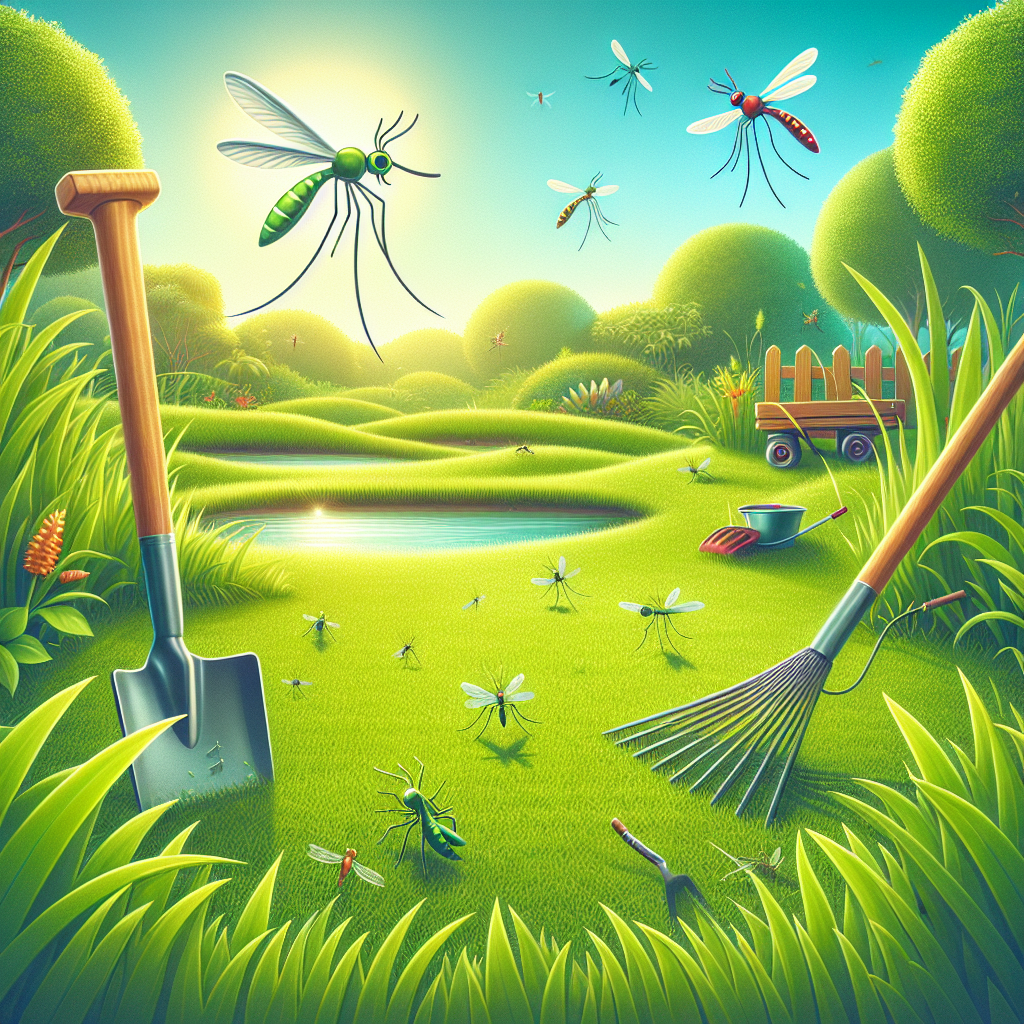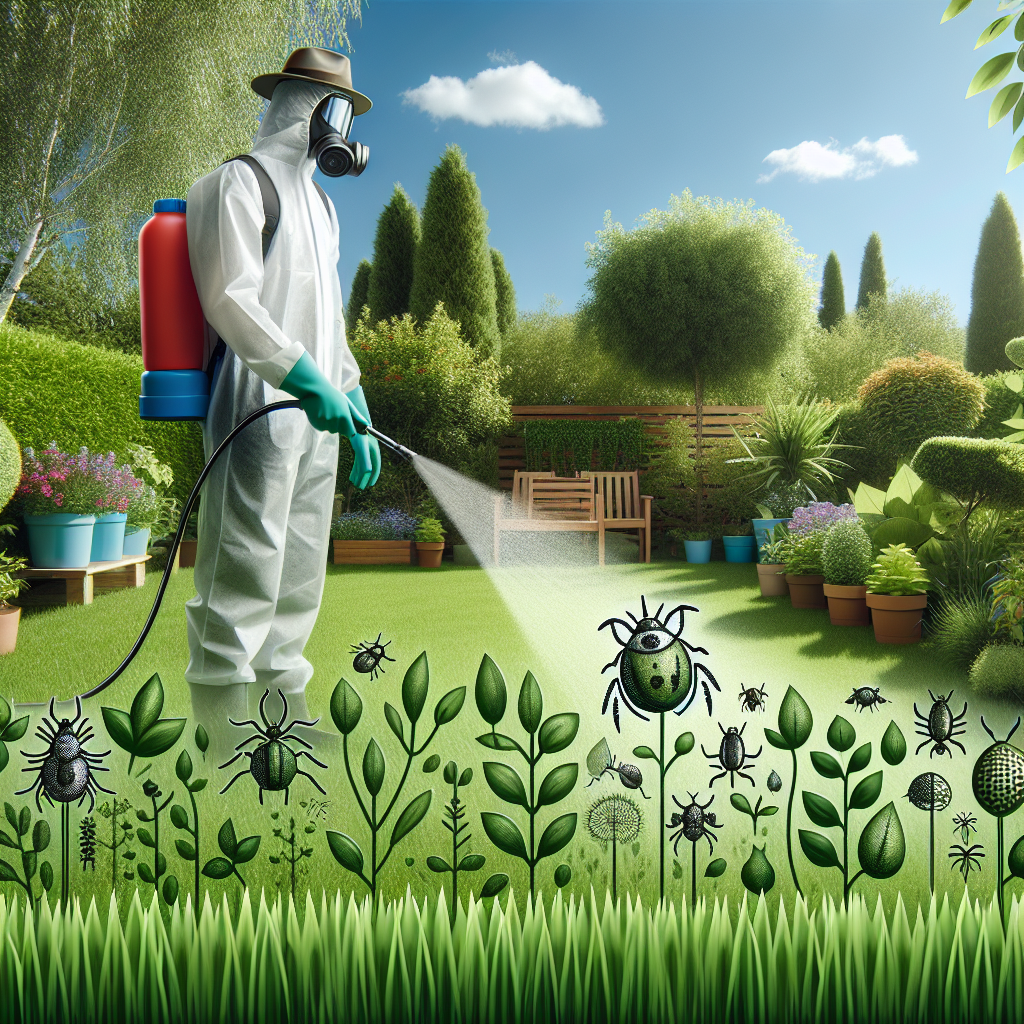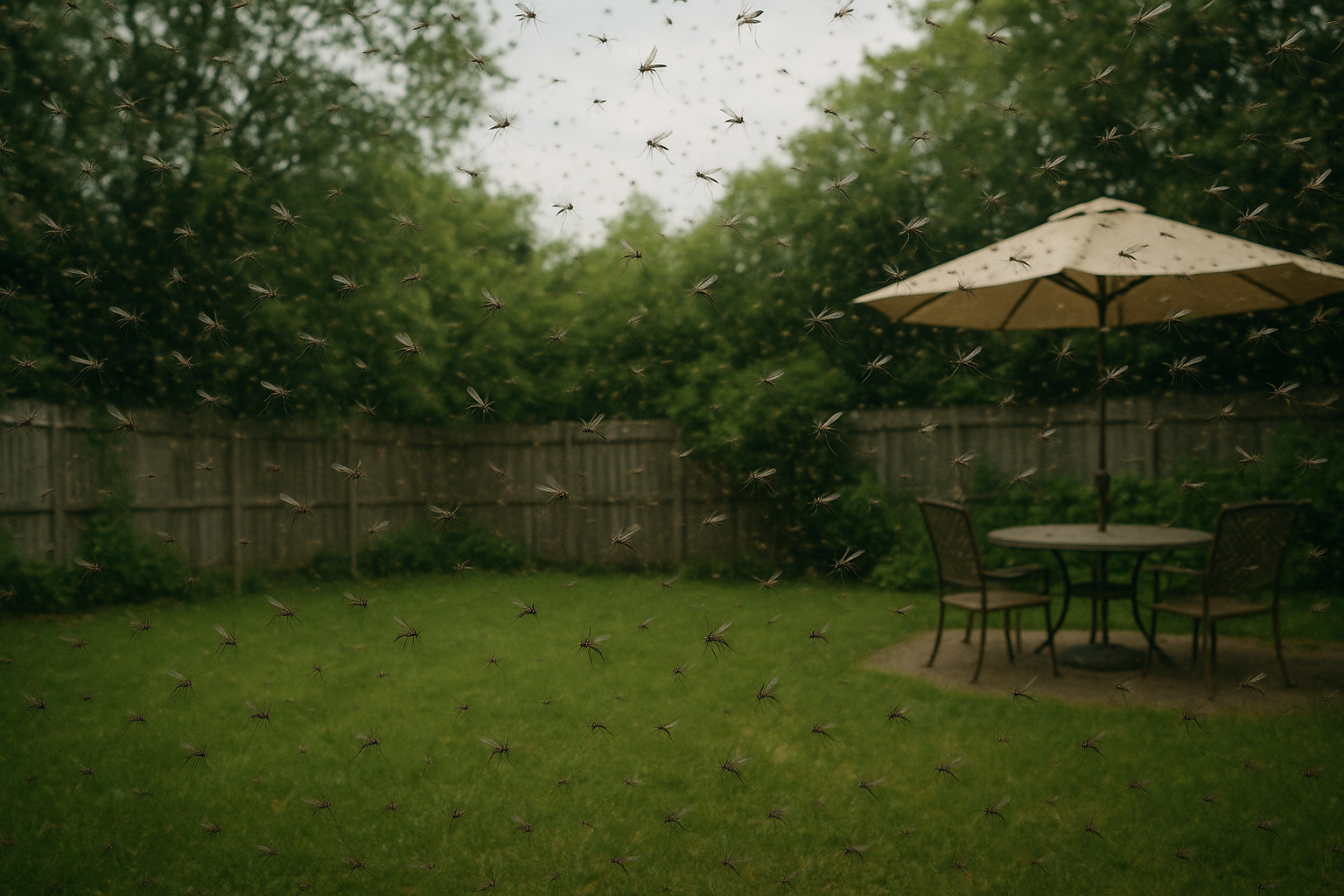Tick Control Solutions for Your Yard
What Are Ticks and Why Are They a Problem?
Tick control is essential for protecting your family, pets, and outdoor spaces. Without proper tick control management, ticks can quickly infest your yard, turning it into a hazardous environment. By implementing effective tick control solutions, you can enjoy your outdoor areas without the constant worry of tick bites and the diseases they carry. Call 919-726-3785 for a mosquito-free yard.
Ticks are small, parasitic arachnids that feed on the blood of humans, animals, and birds. They are notorious for their ability to transmit diseases, making them a significant concern for homeowners. Ticks go through four life stages: egg, larva, nymph, and adult. During their nymph and adult stages, they actively seek hosts to feed on, often hiding in vegetation or attaching themselves to unsuspecting animals or humans. Common tick species found in yards include the black-legged tick (also known as the deer tick), the lone star tick, and the American dog tick.
The health risks associated with ticks are substantial. Lyme disease, caused by the bacterium Borrelia burgdorferi , is one of the most well-known tick-borne illnesses. Other diseases include Rocky Mountain spotted fever, anaplasmosis, and ehrlichiosis. These illnesses can lead to severe symptoms such as fever, fatigue, joint pain, and neurological complications. Pets are also vulnerable to tick-borne diseases, which can cause anemia, paralysis, or even death if left untreated.
Identifying Tick Hotspots in Your Yard
Ticks thrive in specific environments, and understanding where they are most likely to hide can help you target your control efforts effectively. Common tick hotspots include areas with tall grass, wooded edges, leaf litter, and shaded spots. These locations provide ticks with the moisture and cover they need to survive and hunt for hosts.
Inspecting your yard for signs of tick activity is crucial. Start by examining areas near fences, shrubs, and trees, as ticks often congregate in these transitional zones. Look for ticks on blades of grass or leaves, especially in areas where pets or wildlife frequently roam. You can also use a white cloth drag method—dragging a light-colored cloth over suspected areas—to detect ticks.
Seasonal factors play a significant role in tick populations. Ticks are most active during warmer months, typically from spring to early fall. However, some species, like the black-legged tick, can remain active during mild winters. Regular inspections and proactive measures during peak tick seasons can help keep infestations under control.
Natural Tick Control Methods
If you prefer eco-friendly solutions, natural tick control methods can be highly effective. Landscaping adjustments are one of the simplest ways to make your yard less attractive to ticks. Keep your grass short, as ticks struggle to survive in well-maintained lawns. Remove leaf litter, brush piles, and other debris where ticks can hide. Creating a barrier of wood chips or gravel between wooded areas and your lawn can further reduce tick migration.
Natural repellents like cedar oil and diatomaceous earth are excellent alternatives to chemical treatments. Cedar oil acts as a natural insecticide, repelling ticks and other pests without harming beneficial insects. Diatomaceous earth, a powder made from fossilized algae, can be sprinkled in tick-prone areas to dehydrate and kill ticks.
Encouraging natural predators is another effective strategy. Birds like guinea fowl and certain songbirds feed on ticks, while opossums are known to consume thousands of ticks in a single season. By creating a wildlife-friendly yard, you can harness nature’s pest control to keep tick populations in check.
Chemical Tick Control Options
Chemical treatments offer a more aggressive approach to tick control, especially in heavily infested areas. Sprays and granules containing permethrin or bifenthrin are commonly used to kill ticks on contact. These products can be applied to lawns, wooded edges, and other hotspots to create a protective barrier.
When using chemical solutions, safety is paramount. Always follow the manufacturer’s instructions and wear protective gear during application. Avoid spraying near water sources to prevent contamination, and keep pets and children away from treated areas until the chemicals have dried.
While chemical treatments are effective, they come with pros and cons. On the positive side, they provide immediate results and can significantly reduce tick populations. However, they may impact beneficial insects and wildlife, and some homeowners prefer to avoid synthetic chemicals for environmental reasons. Balancing chemical and natural methods can help you achieve effective tick control while minimizing ecological impact.
Tick Control for Pet Owners
Pets are particularly vulnerable to ticks, making it essential to protect them from infestations and tick-borne diseases. Regularly check your pets for ticks, especially after outdoor activities. Pay close attention to areas like the ears, neck, and underbelly, where ticks often attach.
Pet-safe yard treatments and repellents are available to help keep ticks at bay. Products like tick collars, topical treatments, and oral medications can provide long-lasting protection for your furry friends. Additionally, consider using pet-safe sprays or granules in your yard to reduce tick populations without harming your animals.
If you find a tick on your pet, remove it promptly using tweezers or a tick removal tool. Grasp the tick close to the skin and pull it out gently but firmly. Avoid squeezing the tick’s body, as this can release harmful pathogens into your pet’s bloodstream. Proper tick prevention and removal can help keep your pets healthy and happy.
Professional Tick Control Services
For severe infestations or large properties, hiring a professional pest control service may be the best option. Professional tick treatments often include targeted applications of insecticides and integrated pest management strategies to address tick populations comprehensively.
When choosing a tick control company, ask about their methods, products, and guarantees. Ensure they use EPA-approved treatments and have experience dealing with tick infestations. A reputable company will provide a detailed plan tailored to your yard’s specific needs.
Professional services can save you time and effort while delivering long-lasting results. If DIY methods aren’t enough, consider reaching out to experts for effective and reliable tick control.
Call 919-726-3785 for a mosquito-free yard.
Preventing Tick Bites While Enjoying Your Yard
Personal protection is key to preventing tick bites. Wear long sleeves, pants, and closed-toe shoes when spending time outdoors. Light-colored clothing makes it easier to spot ticks before they attach. Apply insect repellents containing DEET or picaridin to exposed skin and clothing for added protection.
Creating tick-safe zones in your yard can help you enjoy outdoor activities without worry. Designate areas with short grass and minimal vegetation for play or relaxation. Use outdoor furniture and equipment that are easy to clean and inspect for ticks.
After spending time outdoors, perform a thorough tick check on yourself, your family, and your pets. Showering within two hours of outdoor exposure can help wash off unattached ticks. These simple steps can significantly reduce the risk of tick bites and tick-borne diseases.
Long-Term Tick Management Strategies
Effective tick control requires a long-term approach. Implementing an integrated pest management (IPM) strategy can help you maintain a tick-free yard year-round. IPM combines multiple methods, such as landscaping, natural repellents, and chemical treatments, to address tick populations holistically.
Seasonal maintenance is crucial for ongoing tick control. Regularly mow your lawn, clear debris, and inspect your yard for signs of tick activity. Adjust your control methods based on seasonal changes and tick population trends.
Monitoring and adapting your tick control plan ensures its effectiveness over time. Stay informed about new tick control products and techniques, and don’t hesitate to seek professional advice if needed. A proactive approach can help you enjoy a safe and pest-free yard.
Common Myths About Tick Control
There are many misconceptions about ticks and tick prevention. One common myth is that ticks only live in wooded areas. In reality, ticks can thrive in suburban yards, especially if they have tall grass or leaf litter. Another myth is that ticks die off completely in winter. While cold weather reduces tick activity, some species can survive mild winters.
DIY remedies like using dish soap or essential oils to kill ticks are often ineffective. While some natural solutions can repel ticks, they rarely eliminate infestations. It’s important to rely on proven methods and expert advice for tick control.
Separating fact from fiction can help you make informed decisions about tick prevention. By understanding the realities of tick behavior and control, you can protect your yard and loved ones more effectively.
Resources for Further Information
For more information on tick prevention and control, visit trusted organizations like the Centers for Disease Control and Prevention (CDC) or your local extension office. These resources provide valuable insights into tick-borne diseases, control methods, and yard care tips.
Additionally, consider reading books or articles on integrated pest management and tick biology to deepen your understanding. Staying informed is the first step toward effective tick control.
Mosquito Authority of Durham NC delivers expert mosquito control services near me, mosquito and tick control, and lawn mosquito control treatments. No contracts. Guaranteed results.
Call 919-726-3785 to reclaim your outdoor space and enjoy a pest-free yard.










